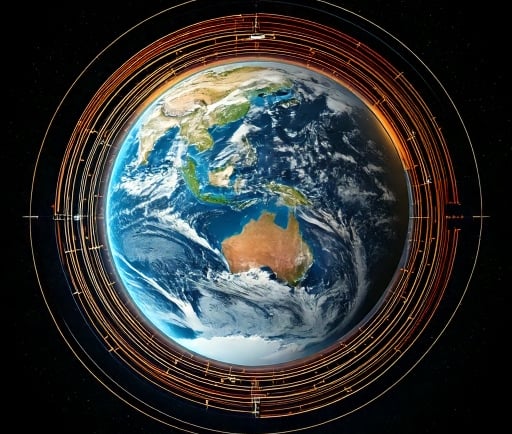The Future of Time: How Earth's Rotation Will Change in 200 Million Years


The Cosmic Dance: Earth's Rotation and Time
Time is an ever-evolving concept, one intricately tied to the rotation of our planet. Currently, a day on Earth lasts 24 hours, a system we've adhered to for centuries. However, projections for the future unveil a striking reality: in approximately 200 million years, a single day on Earth will extend to 25 hours. This gradual change is primarily influenced by the gravitational interactions between the Earth, the Moon, and the Sun.
The Forces at Play: Understanding Earth's Rotational Dynamics
Several factors contribute to the lengthening of Earth's day. Primarily, the tidal forces between the Earth and the Moon act as a stabilizing force. As the Moon orbits Earth, it exerts a gravitational pull that creates tides. This interaction not only influences ocean currents but also gradually slows down Earth's rotation due to the transfer of angular momentum. As the planet experiences this deceleration, the accumulation of the extra hour adds up over millions of years, setting the stage for a future where 1 day will equate to 25 hours.
Implications of a 25-Hour Day on Life and Society
The extension of our day has significant implications for both our planetary environment and societal structures. A shift from a 24-hour cycle to a 25-hour cycle will redefine our biological clocks, affecting numerous aspects of life including sleep patterns, work schedules, and even the way we plan daily activities. As our circadian rhythms adapt, humans and other life forms may exhibit altered behaviors, which could influence everything from agriculture to commerce.
Moreover, the potential for longer days raises intriguing questions regarding energy consumption and resource management. With an additional hour of daylight, societies may reconsider their energy use, leading to more sustainable practices. This transition could also alter the way we perceive time itself, challenging our cultural notions and activities structured around the current 24-hour paradigm.
In conclusion, the prospect that a day on Earth will span 25 hours in 200 million years signals profound transformations not only in our planet's physical dynamics but in the very fabric of life itself. As we consider this eventual reality, it invites deeper reflections on the interplay of cosmic forces and the adaptability of life on Earth.
